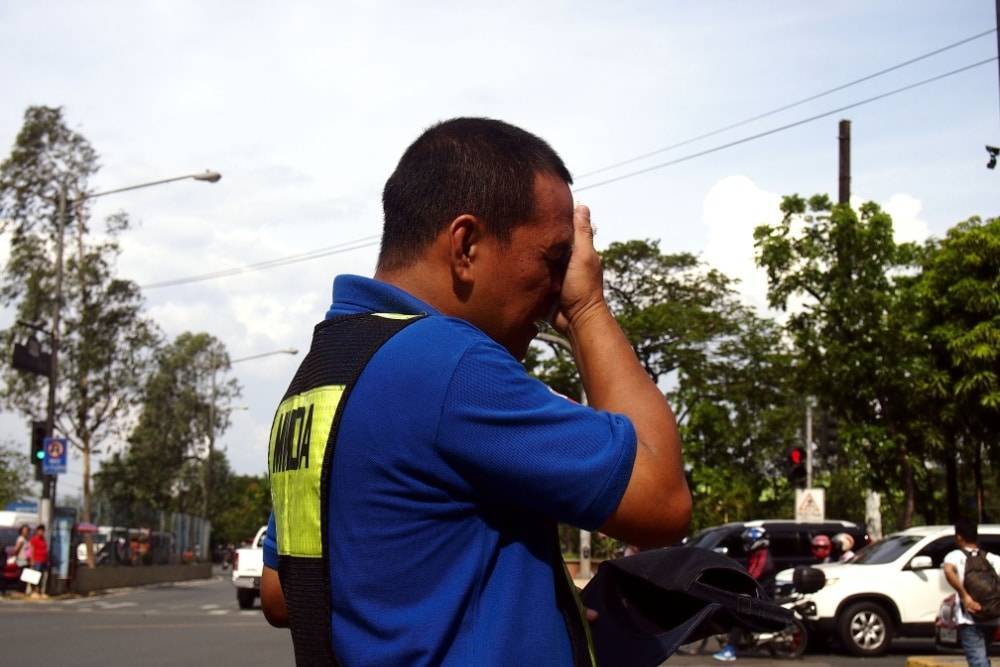As the effects of El Niño bring soaring temperatures, senior citizens find themselves particularly vulnerable to heat-related illnesses. In response, health experts advocate for increased awareness and proactive measures to protect this demographic.
Dr. Rontgene Solante, an infectious disease expert, emphasises the critical importance of hydration as a cornerstone of preventive healthcare for seniors during periods of extreme heat.
The Importance of Hydration
Dr Solante underscores the physiological vulnerabilities of ageing, making senior citizens more prone to dehydration and its associated complications. Adequate hydration is essential for maintaining proper bodily functions and regulating body temperature and supporting overall health. Recommending a daily water intake of up to 12 glasses, he stresses the significance of consistent hydration throughout the day, especially in hot and humid conditions.
Protective Measures Against Heat Stroke
In addition to emphasising the importance of hydration, Dr. Solante advises senior citizens to implement a comprehensive array of protective measures to mitigate the risk of heat-related illnesses effectively.
- Limit Outdoor Activities During Peak Heat Hours:
Limiting outdoor activities during peak hours of intense heat, typically from midday to early afternoon. It is paramount to reduce prolonged exposure to the scorching sun.
- Seek Shade for Sun Protection:
By seeking shade whenever possible, whether under trees, awnings, or umbrellas, seniors can minimise direct exposure to harmful UV rays and alleviate the strain on their bodies to regulate internal temperatures.
- Opt for Appropriate Attire:
Furthermore, Dr. Solante underscores the importance of selecting appropriate attire to provide optimal protection from the sun’s rays.
- Stay Hydrated with Hydrating Foods and Beverages:
Moreover, Dr. Solante highlights the significance of proper hydration through water intake and the consumption of hydrating foods and beverages.
- Monitor Environmental Conditions:
Dr Solante encourages senior citizens to equip themselves with tools and resources to monitor environmental conditions. They should also adjust their activities as part of a comprehensive heat safety strategy.
Ensuring Water Quality
Dr Solante emphasises the importance of ensuring that the water consumed by senior citizens is clean and safe. In areas where tap water may be of questionable quality, he advises boiling water before consumption to eliminate potential contaminants and reduce the risk of waterborne illnesses. Access to clean drinking water is essential for maintaining hydration and preventing dehydration-related complications. This is particularly among older adults with compromised immune systems.
Maintaining Hygiene Practices
In addition to staying hydrated and minimizing heat exposure, Dr. Solante stresses the importance of maintaining proper hygiene practices to prevent the spread of diseases, particularly in communities affected by El Niño. Senior citizens are encouraged to prioritize frequent handwashing with soap and water, especially before handling food or eating. Additionally, ensuring that food and water sources are stored and prepared hygienically can help prevent the transmission of foodborne illnesses and other infections.
Community Support and Education
Dr. Solante advocates for community support and education initiatives to raise awareness about the importance of hydration and heat safety among senior citizens. Providing accessible information and resources, such as hydration reminders and tips for staying cool during hot weather, can empower older adults to take proactive steps to protect their health. Community outreach programs, including health screenings and educational workshops, can also promote healthy ageing and prevent heat-related illnesses.
Conclusion
As El Niño-induced heat waves continue to impact communities worldwide, prioritising senior citizens’ health and well-being is imperative. Citizens must stay hydrated, minimise heat exposure, and maintain proper hygiene practices. By doing so, we can help protect older adults from the adverse effects of extreme heat. Through collaborative efforts and community support, we can ensure that senior citizens remain resilient and healthy in the face of environmental challenges, safeguarding their quality of life for years to come.

